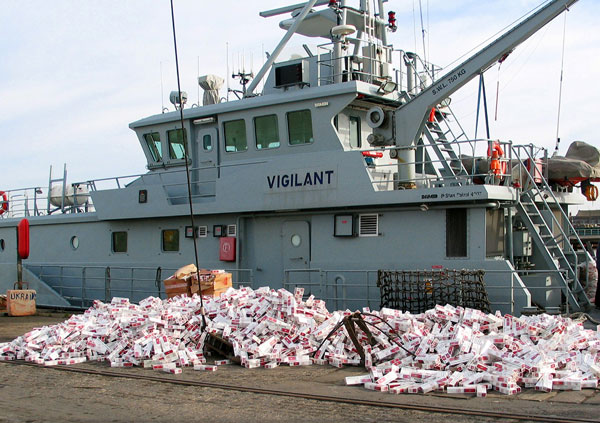Surge in illicit cigarettes

The Government of Sri Lanka might have ‘lost’ Rs18 billion in cigarette tax revenue with a record, estimated 583 million illicit cigarettes having been smuggled into the country during 2017, according to a story in The Daily Mirror citing the findings of a new report.
The surge in illicit cigarettes was said to have been driven by high taxes and the absence of a proper mechanism to combat illicit-cigarette inflows.
The report, A Baseline Study on the Illicit Cigarette Market With the Resulting Tax Implications for Sri Lanka, was co-authored by a group of academics comprising Dr. S.N. Morais, Prof. S.S. Colombage and Dr. C.N. Wickramasinghe, and funded by an unnamed ‘private consultancy firm’.
Morais said that Sri Lanka was becoming a hotspot for illicit cigarettes, which accounted for more than 15 percent of cigarette consumption in Sri Lanka, while Colombage added that a lower-than-projected revenue from cigarette taxes was an indicator of the existence of a massive illicit market. According to him, the realized budget revenue from cigarette taxes was 3.3 percent lower than had been forecast for most of the years between 2009 and 2017. “It is noteworthy that the actual value was lower than the forecast value in six out of nine years, indicating the existence of illicit trade,” he said.
And he said that tax increases alone would not bring down cigarette consumption in Sri Lanka. “Although the weighted average excise tax rate rose by 192 percent, the sales of cigarettes declined only by 26 percent during the period 2010-2017,” he said.
“Even the small reduction cannot be regarded as a decline in the overall smoking prevalence in the country, as smokers may have shifted to the illicit cigarette market, thereby offsetting the fall in legitimate cigarette sales.”
Wickramasinghe said that illicit cigarette consumption was high among migrant communities and low-income consumers.
In some places, the price of an illicit cigarette was 30 percent lower than that of a licit cigarette. However, in other locations, certain illicit brands were sold at a premium.
Illicit cigarettes were sold also by mixing them with licit cigarettes, while charging the standard price. This happened because it was difficult for the average smoker to differentiate cigarettes by appearance, though there were differences in taste. In such cases, the traders earned higher profits because cheap, untaxed cigarettes could be sold at higher prices.
Wickramasinghe pointed out that illicit cigarettes were smuggled into Sri Lanka to meet the demand created by migrant communities for cigarettes produced in their home countries. “These migrant communities have special distribution networks and large quantities of illicit cigarettes are reportedly marketed using online platforms operated in their languages,” he said.
